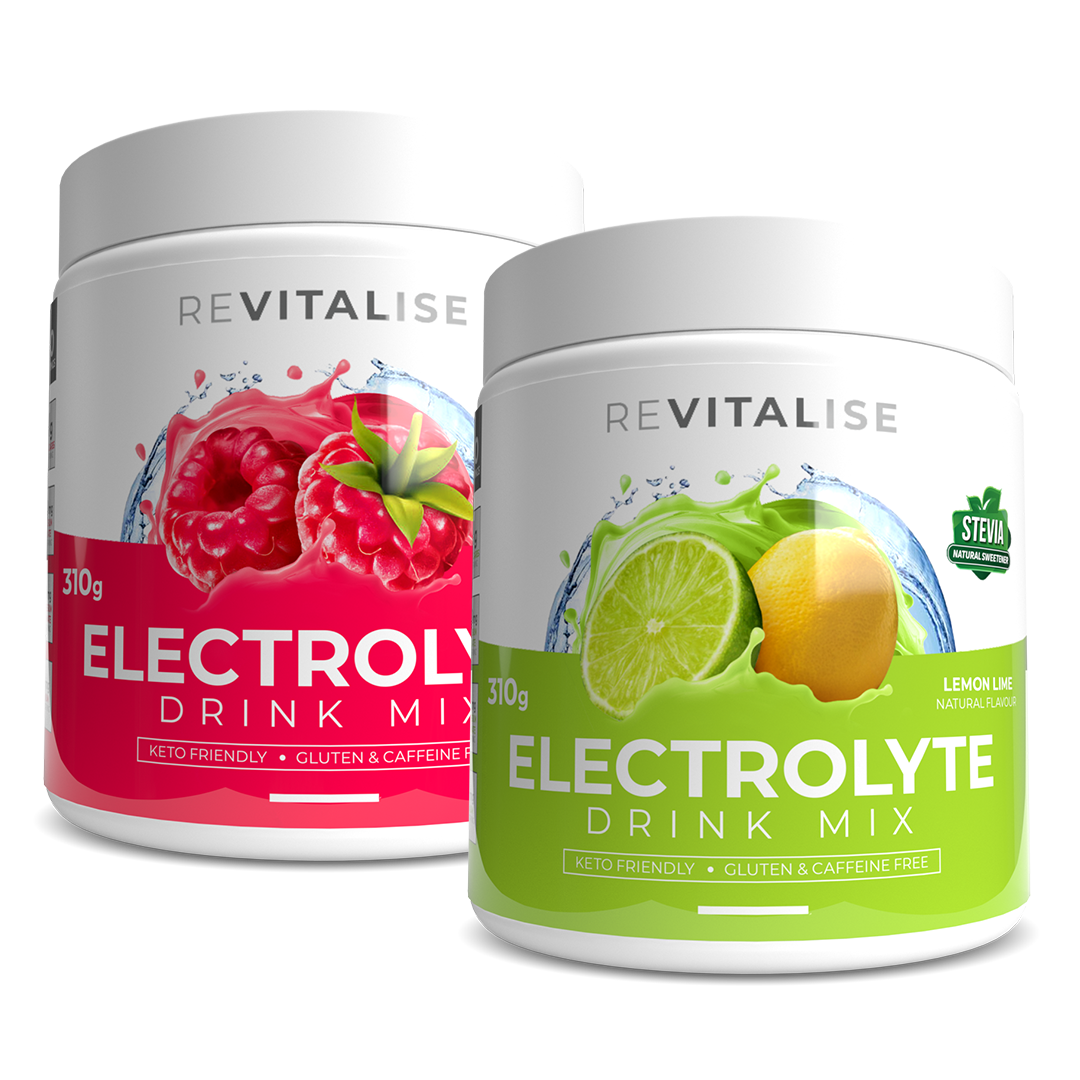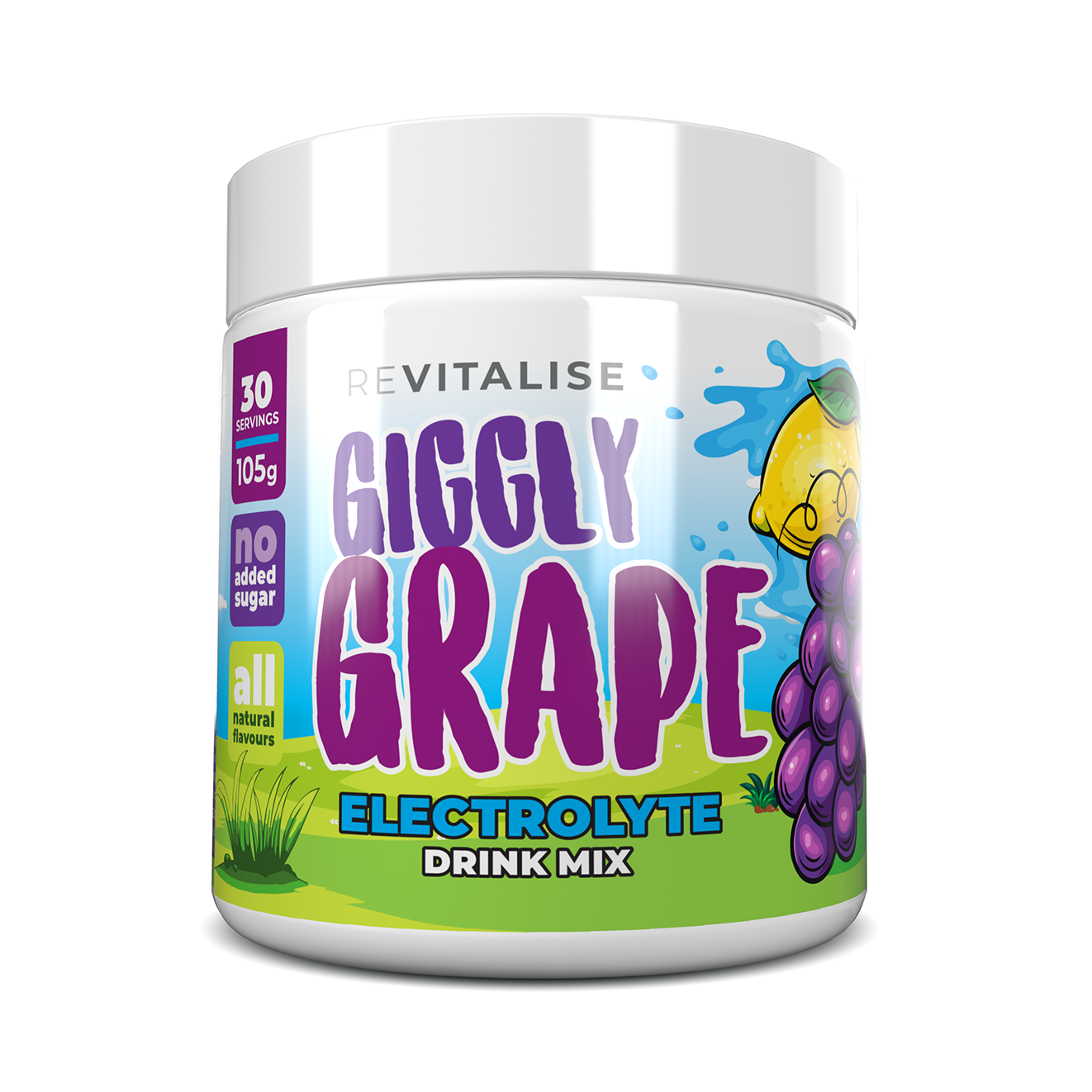What Happens When Your Body Is Low on Electrolytes?
Feeling unusually wiped out during your last workout? Getting random muscle cramps? Struggling to stay focused mid afternoon despite a full night’s sleep? It might not be your training plan or your coffee, it could be that you are low on electrolytes.
Here is what actually happens when electrolyte levels drop, why it can throw your body off balance, and how to recover with hydration strategies that work.
First, What Are Electrolytes?
Electrolytes are essential minerals, including sodium, potassium, magnesium, calcium, and chloride, that dissolve in your body’s fluids and carry an electric charge.
This charge is vital for:
- Sending nerve signals
- Contracting and relaxing muscles
- Balancing your body’s pH
- Moving fluids in and out of cells
Even a mild imbalance can affect your energy, mood, hydration, and physical performance.
Signs You Might Be Low on Electrolytes
When electrolyte levels drop, your body loses momentum, physically and mentally. Symptoms can range from mildly irritating to potentially dangerous.
Common signs include:
- Muscle cramps or spasms
- Fatigue or persistent weakness
- Brain fog, headaches, or dizziness
- Nausea or loss of appetite
- Irregular or rapid heartbeat
- Tingling in fingers or toes
- Irritability or mood changes
In more severe cases, electrolyte depletion can trigger serious complications like seizures, cardiac arrhythmia, or even coma. If you experience extreme symptoms such as chest pain, confusion, or a racing heartbeat, seek urgent medical care.
Why Electrolytes Drop
You do not need to be an endurance athlete to experience electrolyte loss. Everyday causes include:
- Sweating heavily from exercise, heat, or sauna use
- Illness with vomiting or diarrhoea
- Drinking large amounts of plain water without mineral replacement
- Certain medications, for example diuretics or laxatives
- Low carb, fasting, or restrictive diets
- Chronic kidney, liver, or heart conditions
When you sweat or lose fluids, you are not just losing water, you are flushing out sodium, potassium, and magnesium. If you replace that fluid with only plain water, your blood can become diluted, which may lead to hyponatremia, low sodium.
Low carb and keto diets can accelerate sodium loss because reduced insulin levels tell your kidneys to excrete more sodium and water.
How to Know If You Are Running Low
Apart from blood testing, the best way is to listen to your body. Watch for:
- Post workout cramps or muscle twitches
- Dizziness when standing up quickly
- Headaches or ongoing brain fog
- Fatigue that rest does not fix
- Unusual cravings for salty foods
If you have been sick, sweating a lot, or eating low carb, these are strong signs your electrolyte balance may need attention.
How to Rebalance Electrolytes
1) Rehydrate Smarter
Skip plain water overload. Use a balanced electrolyte drink containing sodium, potassium, and magnesium for quick absorption and real recovery.
Meet the Revitalise Electrolyte Range
Revitalise Sodium+, high sodium
- 1,000 mg sodium, plus 250 mg potassium and 70 mg magnesium
- Best when you sweat heavily, train long, work outdoors, follow low carb or keto, feel dizzy on standing, manage low blood pressure or POTS
- Zero sugar, clean ingredients, naturally flavoured
Revitalise Zero Sugar, low sodium
- Balanced electrolytes with a lighter sodium profile
- Best when you want everyday hydration, light training days, desk days, hydration for kids or older adults
- Zero sugar, clean label, refreshing flavours
Quick chooser
- Choose Sodium+ for heat, heavy sweat, long sessions, low carb phases, cramp prevention, POTS support
- Choose Zero Sugar for daily wellness, light movement, cooler days, family friendly hydration
2) Add Electrolyte Rich Foods
Boost intake with:
- Sodium, broth, pickles, salted nuts
- Potassium, avocado, spinach, sweet potato, bananas
- Magnesium, pumpkin seeds, almonds, legumes
- Calcium, yoghurt, sardines, leafy greens
3) Reduce Diuretics
Limit coffee, alcohol, and unnecessary diuretic medications when you are feeling depleted, these can speed up electrolyte loss.
4) Rest and Recover
If you are low on electrolytes, give your body time to bounce back. Swap intense workouts for walking, stretching, or yoga until you feel energised again.
Quick Takeaways
- When electrolytes are low, you may feel tired, dizzy, foggy, or crampy
- Your body’s fluid balance and nerve function suffer
- In extreme cases, serious heart or neurological issues can occur
- The fix is smart hydration with sodium, potassium, magnesium, plus a nutrient rich diet
Stay Balanced with Revitalise
Electrolyte imbalances are common in everyday life. Whether you are sweating, recovering from illness, or adjusting your diet, the Revitalise range makes water work harder so you can feel and perform at your best.


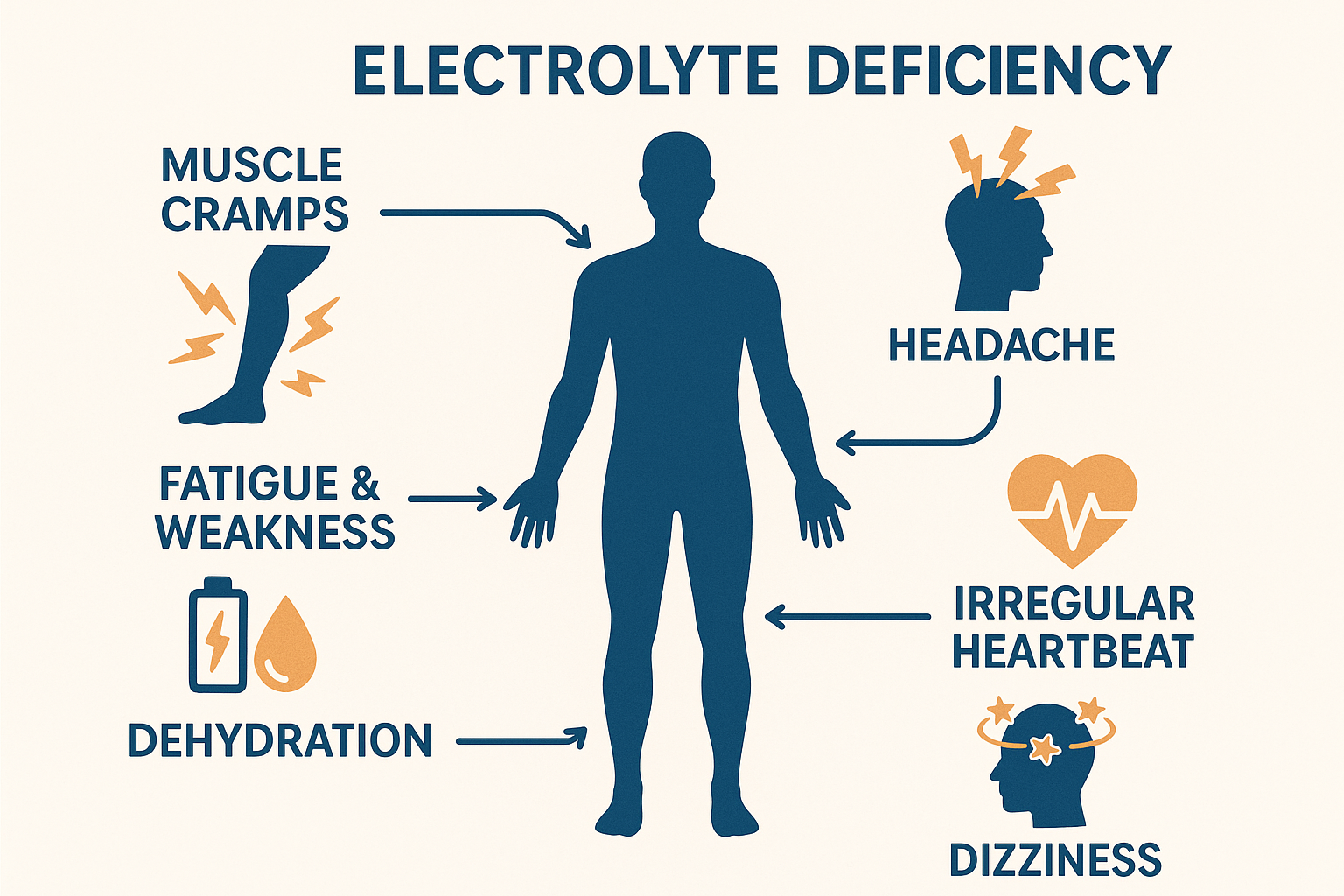


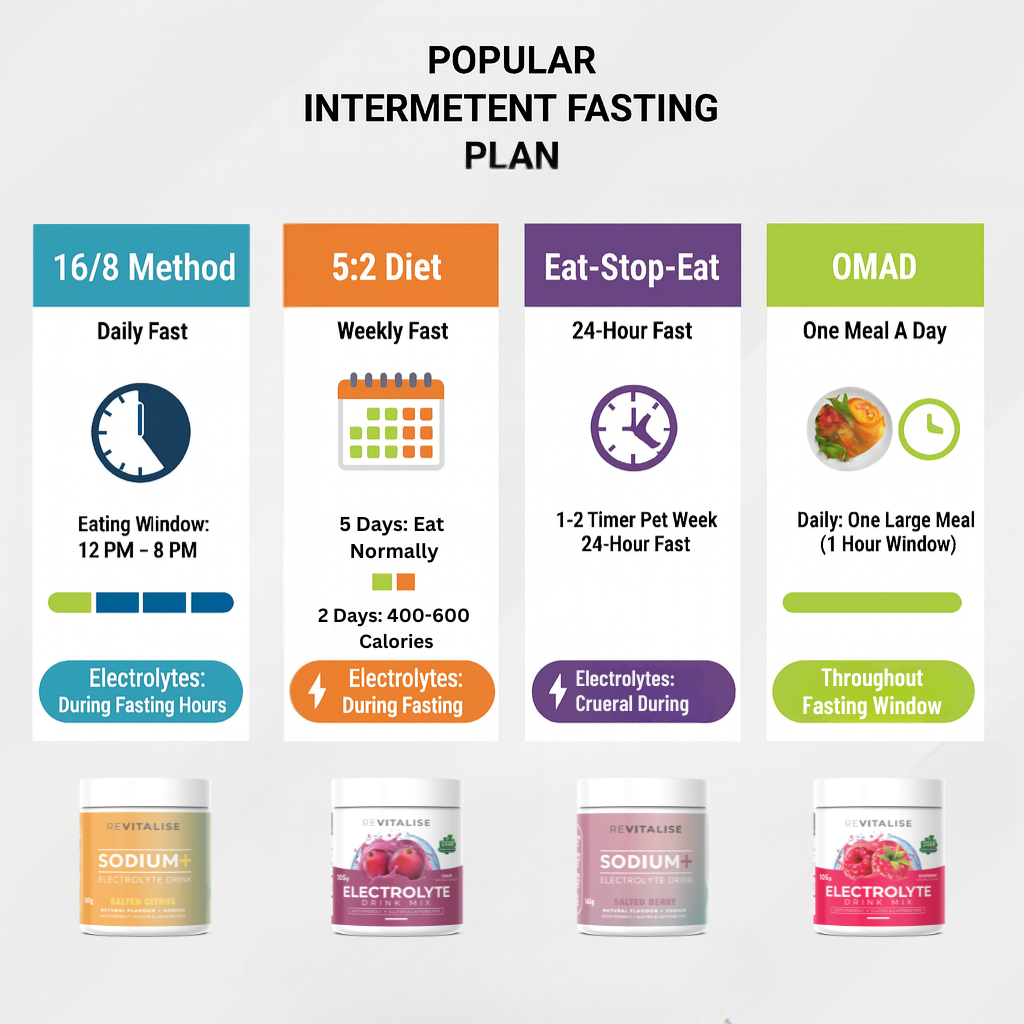
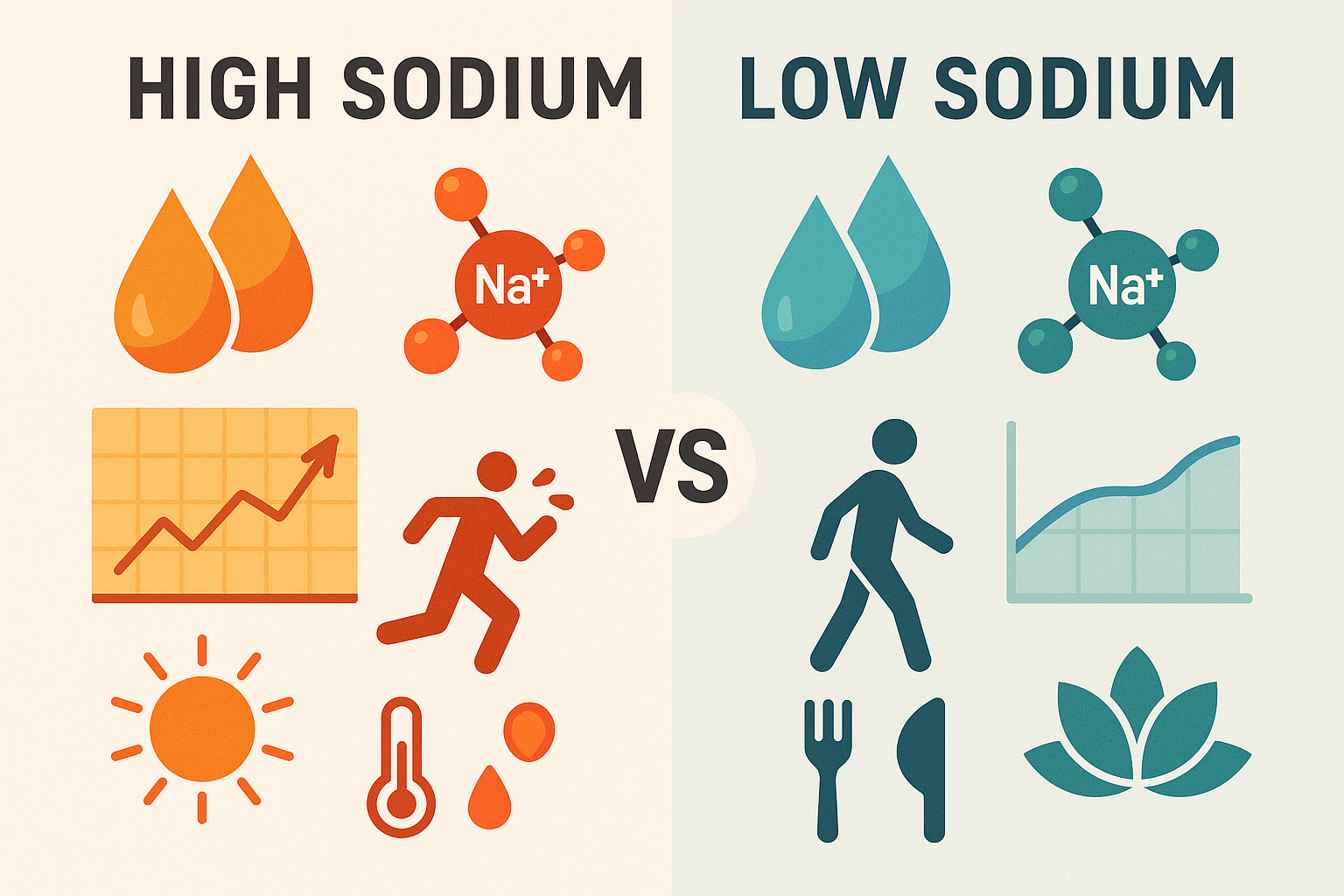



![ReVitalise Zero Sugar Electrolytes [SUBSCRIPTION]](http://revitalisedaily.com.au/cdn/shop/files/30s_LemonLime_3ea1cbec-4b35-4319-8f43-3ad8cbe7cd02.png?v=1698247645&width=1547)
